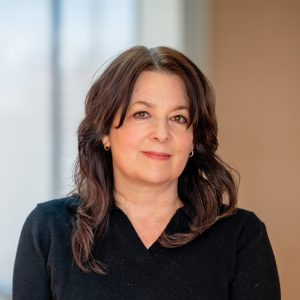MFA in Creative Writing
At Adelphi University, we offer residencies in New York City and semester-long creative mentorships with accomplished and devoted faculty.
Our MFA in Creative Writing program allows you to tailor a flexible and practical curriculum to your artistic goals. In addition, to help with tuition, all accepted students will receive partial scholarships.
Each step of the way, our NYC Creative Writing program aims to prepare you for the life of a working writer, especially as you navigate today’s shifting and vital literary landscape.
Writing in New York City
We see the writer’s life as an ongoing conversation and adventure. At the five-day New York City residencies in August and January, you’ll work closely with distinguished writers, and you’ll also be introduced to editors, literary agents and leaders at literary nonprofits. Our January residency will be held at the Center for Fiction in downtown Brooklyn. We offer concentrations in Fiction, Poetry and Creative Nonfiction, with workshops that culminate in the final thesis course, in which students complete a book-length manuscript. You may choose to focus on any one genre; you may design a path that explores two or more genres; or you may decide to work in a hybrid form.
Our MFA in Creative Writing program focuses intently on craft, with an emphasis on revision and close reading. We also offer practical guidance in publishing, teaching and building a sustainable life as a writer. We are committed to creating an inclusive and diverse writing community, and our goal is to help you find your own best approach to craft.

Ten graduate students from Adelphi’s MFA in Creating Writing program stand outside the Brooklyn Museum following a recent visit.
What are the benefits of a low-residency MFA?
A low-residency MFA in Creative Writing program takes into account the complexity of each writer’s life and welcomes students who may have demanding work schedules or family obligations. This academic framework includes in-person learning at the intensive five-day residencies in New York City, and—during the semester—with small online classes and individualized mentorship. By the end of the two-year, 39-credit program, you’ll complete a thesis—your own book-length manuscript.
Why choose to do your MFA at Adelphi University in New York?
The low-residency structure, which features exciting and innovative creative writing residencies in New York City, is a convenient option for students who may already have established careers in other fields, or who aren’t able to relocate to pursue an advanced degree.
Also, Adelphi’s MFA is one of the most affordable low-residency programs at a private university. To help with tuition, all accepted students will receive partial scholarships.
The low-residency program is a transformation of Adelphi’s long-standing traditional MFA program, whose alumni have gone on to publish books, found literary organizations, and enter publishing and teaching careers.
Adelphi’s faculty are accomplished, award-winning writers who are active in the literary world, and they are devoted and innovative teachers.
Our MFA in Creative Writing program features our core creative writing faculty: Jan-Henry Gray, Katherine Hill, Emily Lee Luan, Igor Webb, and René Steinke. They are joined every year by distinguished guest writers as well as visitors from the literary and publishing world.
Meet Our MFA in Creative Writing Faculty
Dedicated and successful writers themselves, our MFA faculty are all gifted teachers and highly skilled mentors for our writing students. Their goal is to help each student explore—and perfect—their own literary style and voice.
Jan-Henry Gray
Assistant Professor
 Jan-Henry Gray (he/him), assistant professor of English, is the author of Documents, winner of BOA Editions’ A. Poulin, Jr. Poetry Prize (chosen by D.A. Powell) and finalist for the 2019 Thom Gunn Award. His chapbook, Selected Emails, was published by speCt! Books. His poems have been included in various anthologies, including Undocupoetics: An Introduction (HarperCollins/Harper Perennial, 2025), Permanent Record (Nightboat, 2024), Essential Queer Voices of U.S. Poetry (Green Linden Press, 2024), Queer Nature (Autumn House, 2022) and Nepantla: An Anthology for Queer Poets of Color (Nightboat, 2018). His other writings, including essays and reviews, have been featured by the Academy of American Poets, Poetry Foundation, Poetry Daily, The Rumpus, The Margins, DIAGRAM, Colorado Review, Newcity and Teachers & Writers Magazine.
Jan-Henry Gray (he/him), assistant professor of English, is the author of Documents, winner of BOA Editions’ A. Poulin, Jr. Poetry Prize (chosen by D.A. Powell) and finalist for the 2019 Thom Gunn Award. His chapbook, Selected Emails, was published by speCt! Books. His poems have been included in various anthologies, including Undocupoetics: An Introduction (HarperCollins/Harper Perennial, 2025), Permanent Record (Nightboat, 2024), Essential Queer Voices of U.S. Poetry (Green Linden Press, 2024), Queer Nature (Autumn House, 2022) and Nepantla: An Anthology for Queer Poets of Color (Nightboat, 2018). His other writings, including essays and reviews, have been featured by the Academy of American Poets, Poetry Foundation, Poetry Daily, The Rumpus, The Margins, DIAGRAM, Colorado Review, Newcity and Teachers & Writers Magazine.
He has received fellowships from Kundiman and Undocupoets as well as awards from the Jack Kent Cooke Foundation, the Juniper Summer Writing Institute and the Academy of American Poets. In 2019, he co-organized Writers for Migrant Justice, a nationwide reading and fundraiser for Immigrant Families Together. He also served as a mentor for the Asian Prisoner Support Committee, a teaching artist for City Lore (New York City) and a co-curator for Meanwhile (Chicago). Born in the Philippines and raised in California, he currently lives in New York.
Katherine Hill
Associate Professor
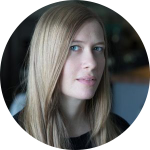 Katherine Hill (she/her) is the author of two novels: The Violet Hour (Scribner, 2013) and A Short Move (Ig Publishing, 2020), which was a New York Times Editors’ Choice. With Sarah Chihaya, Merve Emre and Juno Richards, she is also co-author of The Ferrante Letters: An Experiment in Collective Criticism (Columbia University Press, 2020),which won the PROSE Award for Literature and an Honorable Mention in the MLA Prize for Collaborative, Bibliographical, or Archival Scholarship. Her fiction, essays and reviews have appeared in numerous publications, including AGNI, The Believer, Bookforum, Colorado Review, The Common, The Guardian, Literary Review, n+1, The Nation, The New Republic, The Paris Review Daily, The Philadelphia Inquirer, Post45, Story, The New York Times, San Francisco Chronicle and Tin House. Her writing has been supported by the New York Public Library, the Virginia Center for the Creative Arts, and the Corporation of Yaddo.
Katherine Hill (she/her) is the author of two novels: The Violet Hour (Scribner, 2013) and A Short Move (Ig Publishing, 2020), which was a New York Times Editors’ Choice. With Sarah Chihaya, Merve Emre and Juno Richards, she is also co-author of The Ferrante Letters: An Experiment in Collective Criticism (Columbia University Press, 2020),which won the PROSE Award for Literature and an Honorable Mention in the MLA Prize for Collaborative, Bibliographical, or Archival Scholarship. Her fiction, essays and reviews have appeared in numerous publications, including AGNI, The Believer, Bookforum, Colorado Review, The Common, The Guardian, Literary Review, n+1, The Nation, The New Republic, The Paris Review Daily, The Philadelphia Inquirer, Post45, Story, The New York Times, San Francisco Chronicle and Tin House. Her writing has been supported by the New York Public Library, the Virginia Center for the Creative Arts, and the Corporation of Yaddo.
 Emily Lee Luan
Emily Lee Luan
Visiting Assistant Professor
Emily Lee Luan (she/her) is the author of 回 / Return, a winner of the Nightboat Poetry Prize, and I Watch the Boughs, selected by Gabrielle Calvocoressi for a Poetry Society of America Chapbook Fellowship. A 2023 NYSCA/NYFA Artist Fellow in Poetry and the recipient of a Pushcart Prize, her work has appeared in The Best American Poetry 2021, American Poetry Review, Lithub, and elsewhere. She holds an MFA from Rutgers University–Newark and lives in Brooklyn, New York.
René Steinke
Professor, Director
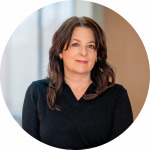 René Steinke (she/her) is the author of the novel, Friendswood (Riverhead, 2014), which was named one of National Public Radio’s Great Reads and an Amazon Book-of-the-Month. Darin Strauss called it “a large-hearted, big-brained book.” Steinke is the recipient of a fellowship from the John Simon Guggenheim Memorial Foundation. Her second novel, Holy Skirts (HarperCollins, 2005), a fictionalized biography of Dada artist and poet the Baroness Elsa von Freytag-Loringhoven, was a finalist for the National Book Award. Her first novel is The Fires (William Morrow 1999). Her essays and book reviews have appeared in The New York Times, Vogue, Salon.com, 4Columns, Bookforum and in anthologies. She is a professor of English and director of the MFA in Creative Writing program at Adelphi University.
René Steinke (she/her) is the author of the novel, Friendswood (Riverhead, 2014), which was named one of National Public Radio’s Great Reads and an Amazon Book-of-the-Month. Darin Strauss called it “a large-hearted, big-brained book.” Steinke is the recipient of a fellowship from the John Simon Guggenheim Memorial Foundation. Her second novel, Holy Skirts (HarperCollins, 2005), a fictionalized biography of Dada artist and poet the Baroness Elsa von Freytag-Loringhoven, was a finalist for the National Book Award. Her first novel is The Fires (William Morrow 1999). Her essays and book reviews have appeared in The New York Times, Vogue, Salon.com, 4Columns, Bookforum and in anthologies. She is a professor of English and director of the MFA in Creative Writing program at Adelphi University.
Igor Webb
Professor
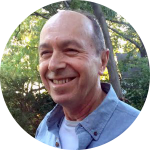 Igor Webb was born in Slovakia and grew up in the Inwood neighborhood of New York City. His poems have appeared in The New Yorker, Poetry (Chicago), Stand and The Hong Kong Review, among others. Among his publications are Rereading the Nineteenth Century (Palgrave Macmillan, 2010) and the memoir Against Capitulation (London: Quartet Books, 1984). His story “Reza Says,” originally published in The Hudson Review, was selected as a Distinguished Story for Best American Short Stories 2012. Christopher Smart’s Cat, a cross- or multi-genre work—part memoir, part literary talk, part fiction, lauded by the late Philip Roth—was published in 2018 by Dos Madres Press. Buster Brown’s America, a collection of nonfiction, including the series This Old Writer: A Journal of a Plague Year, appeared in the Odd Volumes series of The Fortnightly Review in Spring 2022. He is the winner of a National Endowment for the Arts Creative Writing Fellowship, a Woodrow Wilson Fellowship and a Leverhulme Fellowship. He holds a BA from Tufts University and an MA and PhD from Stanford University.
Igor Webb was born in Slovakia and grew up in the Inwood neighborhood of New York City. His poems have appeared in The New Yorker, Poetry (Chicago), Stand and The Hong Kong Review, among others. Among his publications are Rereading the Nineteenth Century (Palgrave Macmillan, 2010) and the memoir Against Capitulation (London: Quartet Books, 1984). His story “Reza Says,” originally published in The Hudson Review, was selected as a Distinguished Story for Best American Short Stories 2012. Christopher Smart’s Cat, a cross- or multi-genre work—part memoir, part literary talk, part fiction, lauded by the late Philip Roth—was published in 2018 by Dos Madres Press. Buster Brown’s America, a collection of nonfiction, including the series This Old Writer: A Journal of a Plague Year, appeared in the Odd Volumes series of The Fortnightly Review in Spring 2022. He is the winner of a National Endowment for the Arts Creative Writing Fellowship, a Woodrow Wilson Fellowship and a Leverhulme Fellowship. He holds a BA from Tufts University and an MA and PhD from Stanford University.
I came to Adelphi for my MFA in Creative Writing because even though I’d been working as a journalist before I joined the program, I wanted to learn the art of storytelling from a different perspective. I’m happy to say the program has made me a more confident storyteller.
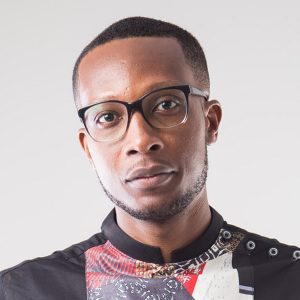 Nii Akrofi Smart-Abbey, MFA ’20
Nii Akrofi Smart-Abbey, MFA ’20
The Residency, “Manhattan Week”
The residencies take place over five days in mid-August and mid-January, when students meet with the creative writing faculty, guest writers and New York-based literary and publishing professionals. Students reside in a local New York City hotel for the duration of the residency. In addition to workshops, lectures, individual conferences, publishing presentations and readings, faculty and students meet together for meals, and there is also time set aside for connecting with peers.
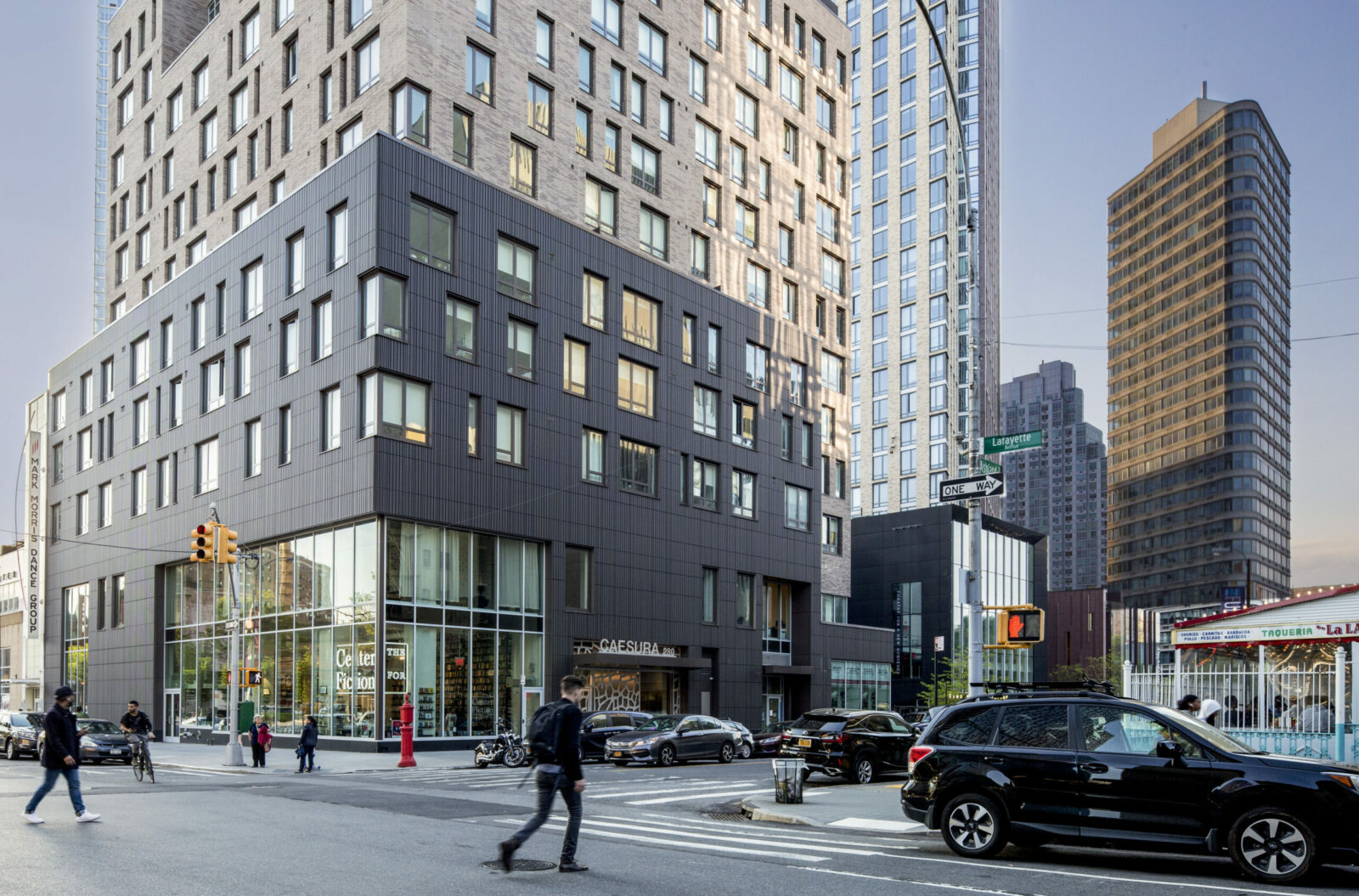
Our January and August residencies will be held at the Center for Fiction in downtown Brooklyn.
Fall and Spring Semesters
Our MFA in Creative Writing curriculum offers you the chance to chart your own path. You can choose to focus on writing a novel, for instance, or you may choose to write poetry one semester and nonfiction the next, as you work toward a thesis that combines both. Our program also offers practical courses in helping you create a working writer’s life, with guidance in publishing, teaching, literary advocacy and creating your own literary community.
Program Info
Application Requirements
We accept applications on a rolling basis. We will continue to review applications for the spring semester until November 15 and for the fall semester until June 15. Applications received after these dates will be reviewed if space is still available. For your application to be considered for a scholarship, please make sure to apply by November 1 for the spring semester, and by May 1 for the fall semester.
Applicants should submit the following:
- Online application form. The $60 fee is waived for this program.
- Final transcript stating bachelor’s degree from an accredited four-year institution
- Official transcripts from all institutions attended
- Personal statement: Tell us something about your writing life and what you hope to accomplish during the program. Tell us what you have read, are now reading and what you intend to read. Describe your current literary interests, your current or future challenges, and anything else you think is important for us to know about you. Please limit your essay to 1,000 words.
- Manuscript in only one of these forms:
- Poetry: 10–15 pages (approximately a dozen poems)
- Fiction: Maximum of 30 pages, double-spaced, which can consist of one or more stories or part of a novel. If an excerpt from a longer work is submitted, please include a one-paragraph description of the work as a whole.
- Creative nonfiction: Maximum of 30 pages, double-spaced, which can consist of one or more pieces or part of a longer work. If an excerpt from a longer work is submitted, please include a one-paragraph description of the work as a whole.
- Mixed-genre work: Maximum of 30 pages, double- spaced
- Encouraged, but not required: One letter of reference from an academic or professional contact who can tell us about your work ethic and your ability to engage with others within an academic/artistic community
Awards & Recognition
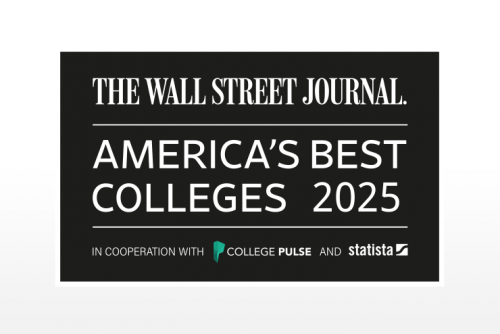


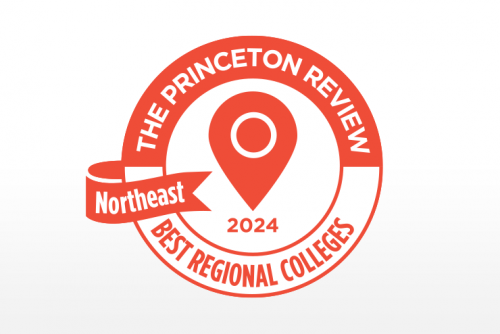
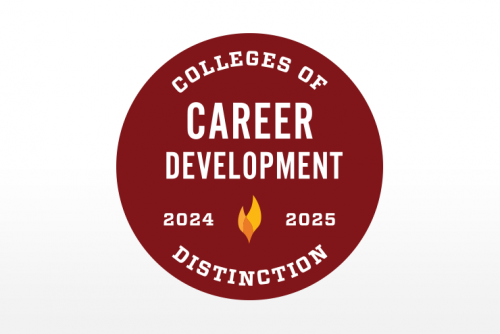

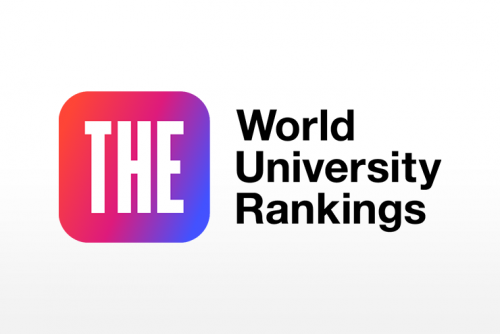
Program Director
-
Contact
-
Harvey Hall 213
